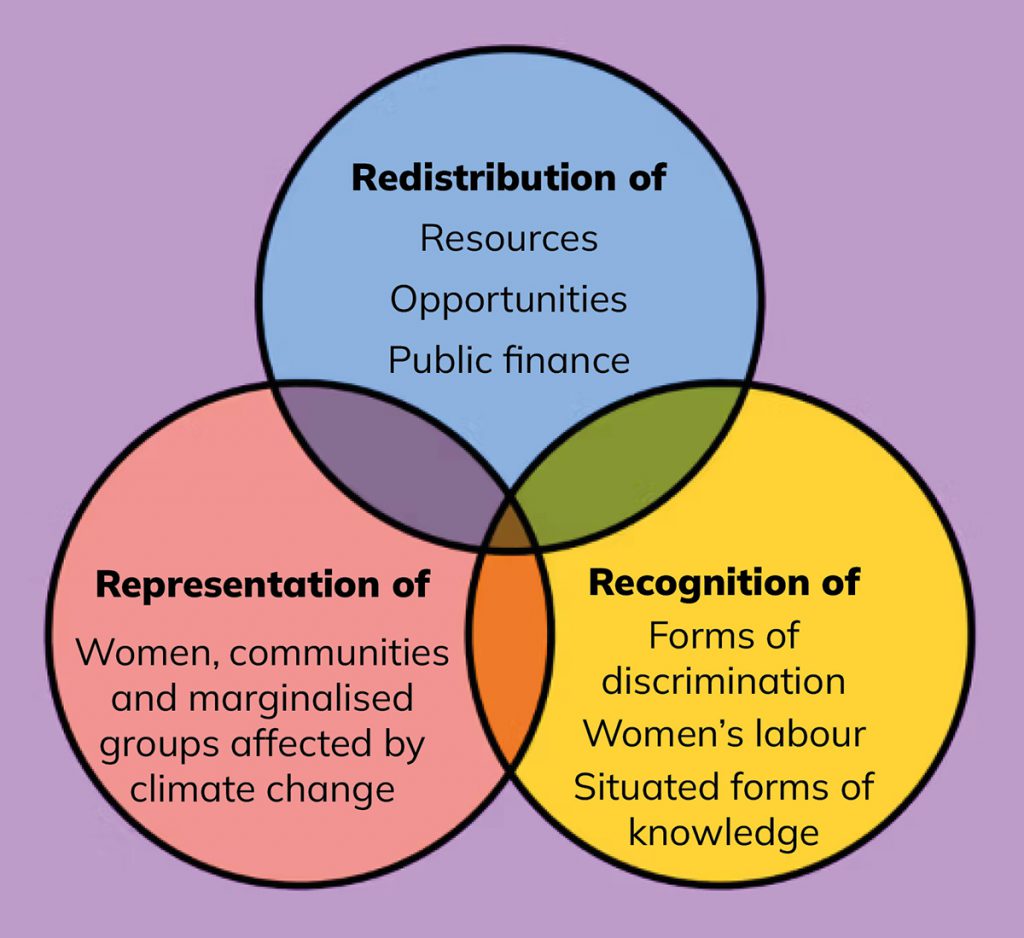The climate crisis is having an alarming impact on Europe – and women and marginalised communities are disproportionately affected. Despite these challenges, Irish and EU climate policy remains largely gender blind. Catherine Forde and Fiona Dukelow consider the impact of this on the development of effective climate change policy
The summer of 2025 has seen a significant increase in the impacts of climate change on Europe. Soaring temperatures and drought have afflicted large parts of the continent. Wildfires have raged across the Mediterranean, causing widespread damage to communities, loss of life and of ecosystems. According to the European Environment Agency (EEA), in 2025 Europe is the fastest-warming continent. The acceleration of European climate change is therefore highly likely to continue.
The EEA has established that it is women and marginalised communities who are most vulnerable to climate change. The major systems most affected are the built environment; agriculture and food; water; and transport.
The Agency points out that injustices may arise at different stages of the climate policy cycle. Two such injustices are failure to redress power imbalances, and the marginalisation of some groups in planning processes. These shortcomings limit procedural justice for vulnerable populations. They coincide with the growing recognition of the need for multi-scalar, inclusive and decentralised governance arrangements in which communities play a greater role in climate action and adaptation.
There is a pressing need for intersectional climate policies and measures that take into account how:
Ireland produces ambitious annual climate action policies. But these policies continually overlook women’s unique experiences and burdens, reinforcing gender inequalities rather than alleviating them. A baseline review of four Irish climate policy areas demonstrates the persistence of androcentric perspectives and policy actions in four key areas: Just Transition; Energy Poverty and Housing; Transport; and Food, Land Use, Agriculture and Biodiversity.
Irish climate policies continually overlook women's disproportionate exposure to problems like energy, housing, and mobility poverty
Data collection for Irish policy tends to neglect gender-specific impacts. This leaves plans largely blind to women’s disproportionate exposure to problems like energy, housing, and mobility poverty. In cases which include data and perspectives that respond to the position of women and marginalised communities, these are typically incorporated in limited and siloed terms. Care work, for example, is inherently low-carbon yet essential to climate resilience. The care sector is however almost completely absent from policy frameworks, and many initiatives fail to address structural barriers such as poverty and discrimination that limit women’s participation. And this, of course, compounds existing inequalities. An inclusive, gender-mainstreamed climate strategy remains elusive.
The EU has committed to a range of agreements that underpin the role of gender in climate change action, including the landmark 2015 Paris Agreement which aimed at reducing global carbon emissions.
However, in a 2022 report, the European Commission’s Advisory Committee on Equal Opportunities for Women and Men (ACEOWM) warns that EU climate policies remain largely gender blind and still operate in 'silo mode'. The report levels particular criticism at the 2019 European Green Deal, which aims to turn Europe into the first carbon-neutral continent by 2050. This criticism focuses chiefly on the Green Deal's androcentric policies, its focus on growth and change in male-dominated sectors, and the absence of an intersectional perspective.
In a 2022 report, the European Commission’s Advisory Committee on Equal Opportunities for Women and Men criticised the European Green Deal for focusing on growth and change in male-dominated sectors
The Advisory Committee recognises the need to make climate action:
UN Women, the women’s arm of the UN, published the report Feminist Climate Justice: A Framework for Action in 2023. The report recognises the need to progress and mainstream gender equality through an intersectional and feminist climate justice lens. It outlines an approach and actions for achieving climate justice based on the 'Rs': redistribution, recognition, representation, and reparation.
Redistribution addresses the numerous distributional issues associated with the gendered distribution of climate harms, and the burdens and benefits of climate policy. Recognition and representation focus on the recognitional and procedural dimensions of climate justice, including the need for greater recognition and representation of women in decision-making fora. Reparation is critically important but less relevant in the context of progressing global feminist climate justice.
The UN Women's 2023 report, Feminist Climate Justice: A Framework for Action, outlines actions for achieving climate justice based on redistribution, recognition, representation, and reparation
The diagram below outlines the core actions highlighted by UN Women in specifically actioning redistribution, recognition, and representation. While all actions are important, the report highlights that recognitional and procedural justice or, in their terms, recognition and representation, are particularly significant from the perspective of women and marginalised communities. In this regard, the report highlights the importance of recognising multiple forms of knowledge, including lived experience and situational knowledge. It rejects the privileging of quantitative over qualitative data, and 'measurable' experience over the kinds of 'lived' knowledge often held by women, communities and Indigenous people.

Ireland and other EU countries must move towards gender mainstreaming across all climate policies. In particular, they need to use the three Rs to enforce binding gender impact assessments, enable women’s voice and leadership, and allocate funding more equitably, thereby moving towards feminist climate justice.
At EU level, a binding directive should enforce sex-disaggregated data collection. The EU must also prioritise intersectional research that aligns with policy goals and mainstream gender in the European Green Deal. By embedding intersectional principles into policy instruments and funding and resourcing mechanisms, Ireland and the EU can transition from gender-blindness to transformative climate action.